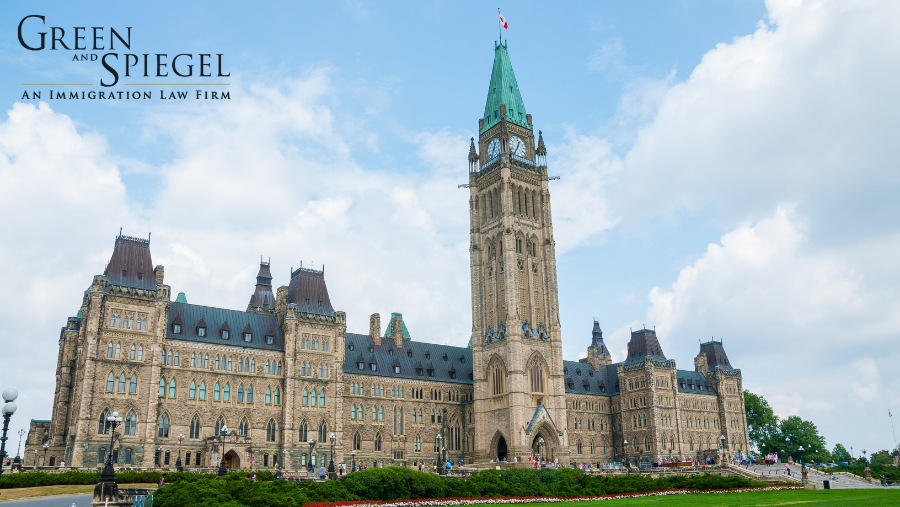In the wake of the spread of COVID-19, immigration lawyers have been confronted with an abundance of new directives from the Government of Canada. Transport Canada has made announcements under the Aeronautics Act. Immigration, Refugees and Citizenship Canada (IRCC) has issued Program Delivery Instructions and “Special Instructions”, and there have been amendments made to the Immigration and Refugee Protection Regulations. The Canada Border Services Agency, headed by the Minister of Public Safety, has provided guidance around stays of removals. There have been litigation-related announcements from the Federal Court and Immigration and Refugee Board. The Deputy Prime Minister and the Prime Minister have made pronouncements. There has been a travel ban and exceptions to that travel ban, and there have been Orders in Council amending earlier versions of the same. It has all been quite dizzying!
Many lawyers have voiced concern and disappointment around the decision to return “irregular” asylum seekers who arrive in Canada from the United States. Such asylum seekers were previously able to do so by crossing the border at an unofficial port of entry, thereby taking advantage of a “loophole” in the Safe Third Country Agreement between Canada and the United States. Although there remains some narrow exceptions for individuals with ties to the United States, it seems COVID-19 has accomplished what Green and Spiegel Partner, Ravi Jain, suspects Canada had long been seeking, but the U.S. resisting, given that President Trump was likely content to see asylum seekers leaving the United States.
Immigration lawyers were also confused as to whether temporary residents who happened to be abroad when the travel ban was announced, including foreign students and foreign workers, would be able to return to Canada. Similarly, there was confusion as to whether holders of newly issued student visas and work visas would be permitted entry to Canada, and whether it made a difference if it was by land or air. Immigration lawyers also wondered if those with approved permanent resident visas would be allowed to enter the country. It was subsequently clarified that all of the above-noted individuals would be permitted entry by air at a date to be announced soon.
Further, language suggesting one had to have “already committed to working, studying or making Canada their home” caused lawyers to worry that new applicants for temporary or permanent residence would be unable to apply. However, the Minister’s office clarified that all foreign workers would soon be allowed into Canada and would not be subject to the travel ban.
There was also the announcement relating to the closure of the Canada-U.S. border as both countries agreed to restrict “non-essential” travel. This was later clarified to Ravi to mean that the border is closed to individuals traveling for tourism and recreation. Further, “flagpoling,” which involves a foreign national leaving Canada to enter the U.S. only to return to Canada for the purpose of obtaining an immigration service, was another area of concern. Although immigration lawyers were noting that foreign nationals were still obtaining work permits, Immigration, Refugees and Citizenship Canada has spelled out that flagpoling is non-essential travel, and that students and workers in Canada should apply to renew their permits online.
Also, IRCC will be communicating instructions to individuals in Canada who are in the final stages of their permanent residence application regarding “telephone landings” as a way to avoid in-person meetings with immigration officers.
Removals of clients to unsafe countries also had lawyers concerned. However, the Canada Border Services Agency has confirmed a temporary suspension of deportations.
IRCC has confirmed that it is providing automatic extensions and that no application would be refused due to delays caused by COVID-19. For example, deadlines for permanent residence applications submitted via the Express Entry system were given blanket extensions to 90 days from 60. This addresses the fact that biometric collections have been suspended at all in-Canada collection points.
In-person citizenship matters, including interviews, tests, and ceremonies have been cancelled at this time. Further, litigation matters have been postponed, including hearings and mediations before the Federal Court of Canada and the Immigration and Refugee Board (excluding some detention reviews).
Moreover, there was concern regarding “family members” of Canadian citizens and permanent residents, who form an exception to the travel ban. The Immigration and Refugee Protection Act defines “family member” to include spouses and common law partners, their dependent children, and any dependent children of their dependent children. While the travel ban’s definition of “family member” initially seemed restrictive, it was later clarified that it is defined more broadly than in the IRPA. As such, a “family member” additionally includes a foreign national’s own parents or stepparents, the parents or stepparents of the foreign national’s spouse or common-law partner, and the foreign national’s guardian or tutor.
Finally, Ravi has asked IRCC if it will consider:
- Renewing immigration documents beyond the foreign national’s passport validity (given that some foreign consulates are not renewing passports at this time).
- Accepting electronically reproduced signatures in lieu of original or “wet” signatures (just as President Trump announced that the United States would do, effective March 13, 2020).
- Allowing lawyers to receive and mail Permanent Resident Cards to clients who are abroad, instead of requiring clients to fly to Canada to pick them up in person.
- Allowing foreign students to work more than 20 hours per week, the maximum that is currently authorized.
- Permitting visitors in Canada who have work permits approved by a visa office abroad to obtain them inland.
- Permitting spousal sponsorship applications to be submitted without photographs by lawyers (this would normally deem the application incomplete).
- Permitting applications to be submitted online as opposed to by mail.
- Allowing required original documents, such as police certificates, to be sent in at a later date.
- Permitting spousal sponsorship applications to be accepted with the record of solemnization of marriage in lieu of a marriage certificate, given that new marriage certificates cannot currently be provided.
Ravi is advised that more announcements will be made in the coming days and immigration lawyers’ heads will continue to spin.
This article was originally published by The Lawyer’s Daily (www.thelawyersdaily.ca), part of LexisNexis Canada Inc.





